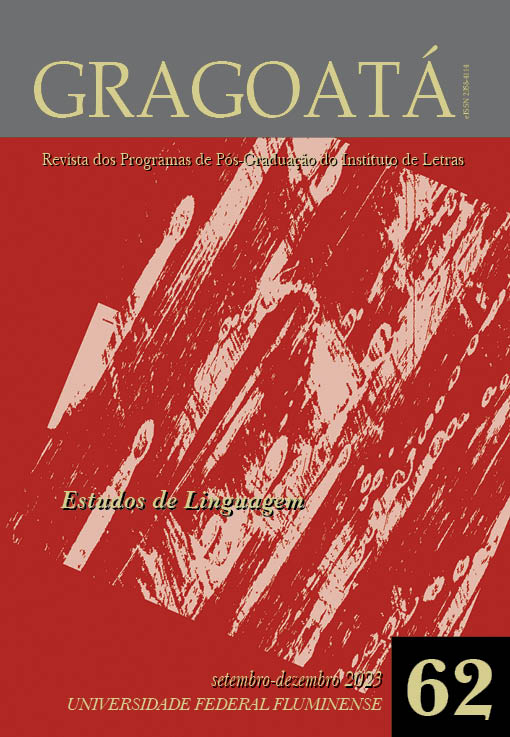Wittgensteinian forms of life and amerindian perspectivism: towards a wild anthropological linguistic
DOI:
https://doi.org/10.22409/gragoata.v28i62.58324.ptKeywords:
Linguística antropológica, L. Wittgenstein, Formas de vida, Perspectivismo ameríndioAbstract
Based on the assumption that we are experiencing a certain methodological crisis in the Humanities – of which Language Studies are a part – this article proposes a perspective of discursive studies that is based on the conception of language as a form(s) of life as expressed by the thinking of mature L. Wittgenstein. Concomitantly, we intend to reread the Wittgensteinian perspective of language from the perspective of another perspectivism: the Amerindian, as formulated by the Brazilian anthropologist Eduardo Viveiros de Castro (2002, 2018). Thus, starting from a philosophy of ordinary language, we will read the Wittgensteinian forms of life with an Amerindian lens. As we will see, our conception of language has as an epistemological consequence the inessentiality of its concepts. This fleetingness slips into being itself: the cannibal digests his enemy and takes his name, the greatest honor attainable by transforming his corporeity. Among the Amerindians, it is in the body that beings – all people – (dis)identify with each other. The subject, like language, is necessarily constituted in/through otherness. Finally, subject and language are entities that are always becoming. Forms of life are biological and cultural – or rather: there is no such nature/culture distinction. And this is not a relativism, but a linguistic-anthropological perspectivism.
Downloads
Downloads
Published
How to Cite
Issue
Section
License
Copyright (c) 2023 Gragoatá

This work is licensed under a Creative Commons Attribution 4.0 International License.
Authors who publish in Gragoatá agree to the following terms:
The authors retain the rights and give the journal the right to the first publication, simultaneously subject to a Creative Commons license CC-BY-NC 4.0, which allows sharing by third parties with due mention to the author and the first publication by Gragoatá.
Authors may enter into additional and separate contractual arrangements for the non-exclusive distribution of the published version of the work (for example, posting it in an institutional repository or publishing it in a book), with recognition of its initial publication in Gragoatá.

Gragoatá is licensed under a Creative Commons - Attribution-NonCommercial 4.0 International.














